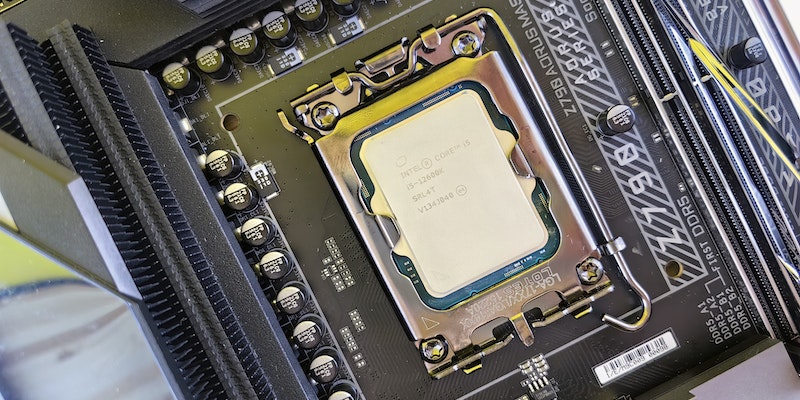Intel’s latest processor, the Core i9-14900KF, has made waves in the tech world by shattering the previous world record for overclocking. In a remarkable display of power and precision, a team of overclockers from Asus managed to ramp up the Core i9-14900KF to an astonishing 9044MHz (or 9.04GHz). This achievement not only exceeds the previous record by 35MHz, but also demonstrates the immense potential of Intel’s flagship Raptor Lake Refresh processor.
Overclocking Achievement
With their expertise and determination, the Asus team successfully pushed the limits of the Core i9-14900KF. By meticulously fine-tuning the processor, they were able to achieve a clock speed of 9044MHz, claiming the new world record for overclocking. Despite the modest increase from the previous record, the significance lies in the relentless pursuit of higher speeds in the overclocking scene, where even slight gains carry tremendous weight.
Significance of the achievement
The world of overclocking is a realm where every millisecond and every fraction of a hertz matter. It is a pursuit that demands patience, skill, and unwavering dedication. The fact that it took an entire week to surpass the previous record further accentuates the challenges of achieving these small yet impactful advancements. In an arena where mere megahertz differentiates the exceptional from the ordinary, such achievements stand as a testament to the ingenuity of overclockers and the potential of high-performance computing.
Pushing Beyond the Record
What sets overclocking apart is the continuous quest for pushing boundaries and venturing into uncharted territory. After setting the new record, the Asus team pushed the Core i9-14900KF even harder and briefly saw it achieve 9.1 GHz. Although the system experienced a temporary lock-up at this extreme speed, it is highly likely that stable 9.1 GHz overclocking will be attained in future endeavors. Drawing on the past success with the 13900K processor, which eventually surpassed 9 GHz, the Raptor Lake Refresh flagship holds tremendous potential for further groundbreaking achievements.
Evaluation of the Core i9-14900K
While the Core i9-14900K’s clock speeds are undoubtedly impressive, it is important to note that this processor may not be the best choice for the average PC owner, particularly for gamers. Although it showcases the pinnacle of overclocking capabilities, its power and capabilities might be better suited for specific use cases that demand uncompromising performance, such as intensive rendering or scientific computations. Gamers, on the other hand, may find better value in Intel’s other offerings.
The impressive 14700K
In the midst of celebrating the Core i9-14900KF’s overclocking prowess, it is worth mentioning Intel’s equally impressive 14700K processor. Making waves with its exceptional performance, the 14700K has earned its place at the top of the best processors list. Designed to deliver exceptional power and efficiency, the 14700K offers a compelling choice for those seeking high-performance computing without delving into extreme overclocking.
Intel’s Core i9-14900KF has proven its mettle by smashing the world record for overclocking. This monumental achievement, reached by the diligent work of Asus overclockers, highlights the tremendous possibilities that Intel’s flagship Raptor Lake Refresh processor holds. With further advancements expected, stable 9.1GHz overclocking could soon become a reality. While not the optimal choice for the average PC owner or gamers, the Core i9-14900KF signifies the future of high-performance computing and paves the way for Intel’s continued dominance in the industry.

